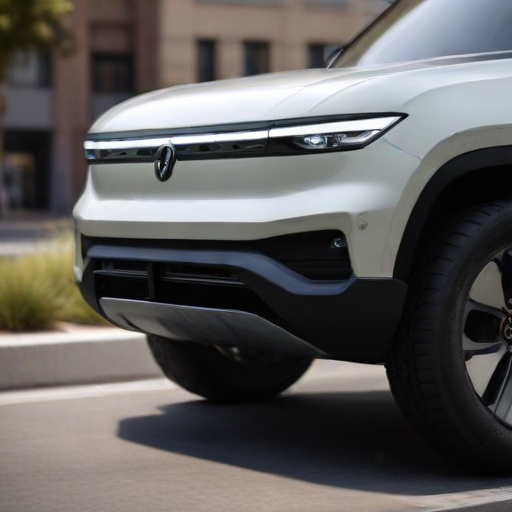Rivian’s stock saw a significant increase of up to 16% during early afternoon trading on Wednesday, following the announcement of an expanded partnership with Volkswagen. This collaboration involves an additional investment from the German automaker into their joint venture, initially launched in June, and will leverage Rivian’s innovative electrical architecture, termed “zonal architecture,” alongside its proprietary software. This technology is set to facilitate the rollout of Rivian’s upcoming midsize R2 SUV, expected in the first half of 2026.
In a pivotal update, Rivian’s technology will also support the anticipated launch of new Volkswagen electric vehicles as early as 2027. The joint venture will commence operations today, starting in North America and future plans include expansion into Europe while also focusing on the development of subcompact electric vehicles. Volkswagen’s overall investment in this deal has risen to $5.8 billion, increasing from an initial $5 billion.
To date, Volkswagen has invested $1 billion via a convertible note and will inject approximately $1.3 billion for intellectual property licenses and a 50% stake in the joint venture. An additional $3.5 billion is slated to follow, contingent on achieving specific milestones, in the forms of equity, convertible notes, and debt.
Notably, this collaboration will not encompass battery technology, platforms, or electric drive units, as confirmed by a Rivian spokesperson. Wedbush analyst Dan Ives emphasized the significance of this partnership for Rivian, citing it as crucial for ramping up production and enhancing the R2 and R3 midsize platforms.
Despite a wider-than-anticipated loss for the full year outlined in their Q3 financial results, primarily due to supply chain challenges, Rivian remains optimistic about achieving a “modest gross profit” in the fourth quarter. Wedbush has reaffirmed its Outperform rating with a price target of $20 following the news of the expanded agreement.
Volkswagen’s need for Rivian’s software capabilities comes as no surprise, given the recent development issues faced by the automaker’s CARIAD software unit, which has caused delays and bugs affecting the launch of key vehicles like the Porsche Macan EV. For Rivian, this capital investment presents a substantial opportunity to advance its R2 vehicle production plans.
This expanding collaboration illustrates the growing synergy in the EV industry, as established manufacturers seek partnerships with innovative firms to drive technological advancements and meet increasing consumer demand for electric vehicles. Rivian’s ability to leverage Volkswagen’s investment could significantly position it for long-term success.
In summary, Rivian’s strengthened partnership with Volkswagen not only enriches the company’s financial standing but also marks a hopeful step toward enhanced production capabilities and innovative electric vehicle development in the coming years.
